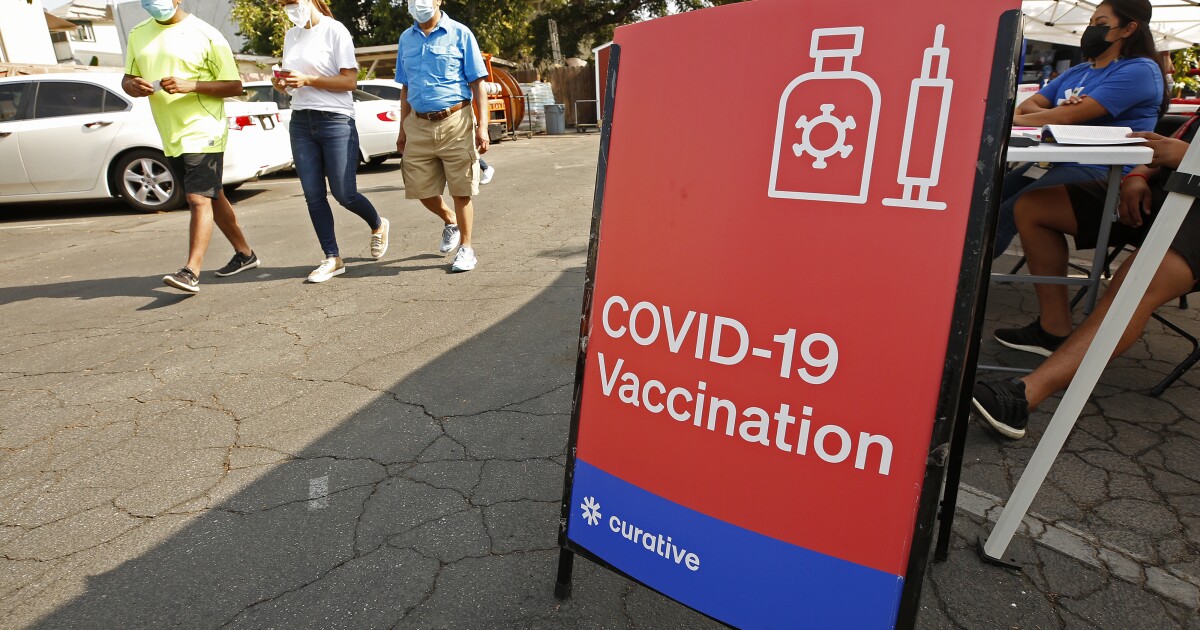You are here
Why a fast-spreading coronavirus and a half-vaccinated public can be a recipe for disaster
Primary tabs
 Why a fast-spreading coronavirus and a half-vaccinated public can be a recipe for disaster Unleashing a fast-spreading coronavirus variant on a half-vaccinated population can lead to a vaccine-resistant strain. Los Angeles Times
Why a fast-spreading coronavirus and a half-vaccinated public can be a recipe for disaster Unleashing a fast-spreading coronavirus variant on a half-vaccinated population can lead to a vaccine-resistant strain. Los Angeles Times People who are between their first and second vaccine doses are at risk of incubating mutations that could produce new variants — especially ones that allow the virus to dodge the protection provided by vaccines. . . RNA viruses like SARS-CoV-2 mutate frequently because their replication program fails to fix many of the mistakes that arise when they make copies of their genetic code. . . Studies of variants’ spread in populations, as well as models of their emergence, have demonstrated that new viral strains have a better chance of making their way into broader circulation when cases are surging. The brisker the spread, the more chances a variant with enhanced capabilities has to springboard into broader circulation. Encountering a “superspreader” event in the weeks following its birth gives a variant its best chance at taking off, a modeling study found. If its carrier can spread it to just five people, it will have enough momentum to compete for more victims. Infecting 20 or more people in a single go would give it a real chance of dominating its new community.



Recent Comments